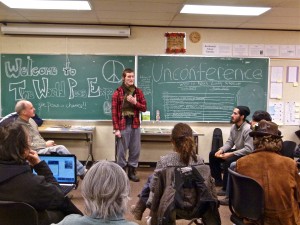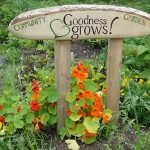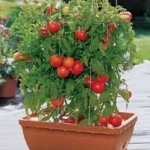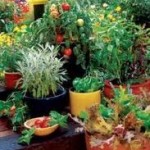Inspired by the Occupy Movement, Occupy Gardens Toronto represents a group of people resisting inequality, corporate greed, growing hunger, and the destruction of nature by growing a sustainable network of community gardens around Toronto. On February 11, 2012 Occupy Gardens Toronto hosted the World Peas Expo at the Ontario Institute for Studies in Education of the University of Toronto. The theme of the event was to celebrate the relationship between food and peace: food security relates to personal, collective, and ecological security. Growing food together builds community, bridges difference, decreases conflict, and nurtures peace.
Maria Kasstan is a raging granny and a peace, social justice and environmental activist. She started to occupy the food movement at the grassroots level many years ago to globalize food agendas and promote the empowerment of all citizens. For Maria, “the interconnection of food and peace means putting our energies into world peace by feeding people, taking care of people, and nurturing them.”
Growing alternative sources of food production sustains food security and allows nature to flourish. Maria has been a radical gardener all her life and suggests, “Community gardens build competence, democracy, community, and a green thumb. People come together from all parts of the world in my community garden and we teach each other how to grow food, cook food, store food, and how to live. I teach about seed saving and how to have heirloom tomatoes rather than ice box tomatoes, for example, because they are varieties that are not commercially mass-produced and therefore need our protection.” Maria emphasizes the importance of generating a food economy supported by the “gifts of nature.”
Building local food economies are a vital part of holistic wellbeing and are a form of resistance to the systemic power of large multinational food producers over small sustainable farmers. Maria reflects, “We saw the corporate take-over of food where we’ve been made helpless by this artificial kind of domestication where people are subjected to big business. It is important for governments to put money into supporting local agriculture and tanning businesses so we can have our orchards again and produce local fruits. We need to learn how to be more self-reliant and self-sufficient.” Engaging in an ongoing process of community organizing around food sovereignty increases our capacity to live independently and sustainably.
With the rising cost of global food prices people are growing their own food all year round. “It’s about urban agriculture,” Maria contends. “There are roof tops throughout the city that can, or are, growing tons of food by container gardening. There are techniques that are more productive than growing in the ground in many cases, strategies such as sub-irrigation that uses homemade worm compost. We must recognize ecological variability and adapt as part of the natural ecosystem.” Like Maria, now is the time to be committed to plotting out all the possibilities of decentralizing food production because food security is inherent to the process of building peace.
Community gardening increases the awareness of the value of food in creating equitable, life-sustaining, and peaceful societies. “Food can certainly build community and it can build peace internationally,” Maria posits. “If people are hungry I think they are angry and therefore not peaceful. When there is an equal distribution of food there is security and that’s peace.” Re-establishing genuine community, fostering environmental sustainability, and co-creating local economies guide actions toward global peacebuilding and the creation of a just, humane, and sustainable world.
Through events such as the World Peas Expo and the efforts of activists like Maria, the importance of food in building peace is increasingly recognized. In the spirit of growing a sustainable network of community gardens around Toronto and the world, “It’s Thyme. Lettuce Occupy Gardens for World Peas!”
Maria’s Heirloom Tomato Salad
Ingredients
- 8 to 10 small heirloom tomatoes, a variety of colors if possible
- 2 cloves garlic, finely minced
- 1/4 cup diced sweet onion or purple onion
- 1 tablespoon fresh chopped parsley
- 1 tablespoon fresh chopped basil or 1 teaspoon dried leaf basil
- 2 tablespoons red wine vinegar
- 3 tablespoons extra virgin olive oil
- 1/2 to 1 teaspoon salt or to taste
- 1/4 teaspoon fresh ground black pepper
Cut cores from the heirloom tomatoes. Slice each tomato into 8 to 10 wedges. Combine with remaining ingredients in a large bowl. Toss to blend well. Cover and refrigerate for at least 1 hour before serving. Serve on salad greens, if desired. Enjoy!







Recent Comments